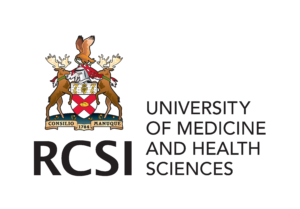Project Area: Population health research
Project Summary
Nausea and vomiting in pregnancy (NVP) are common symptoms experienced by most pregnant women, with severe cases, known as hyperemesis gravidarum (HG), affecting approximately 3.6% of pregnancies. HG is associated with significant physical and mental health burdens, including increased risks of antenatal anxiety, depression, and post-traumatic stress disorder (PTSD). Despite these impacts, there is limited understanding of the perinatal mental health needs of women with HG, particularly in Ireland. Misconceptions about HG’s psychogenic origins among healthcare professionals exacerbate these challenges, contributing to treatment delays and dissatisfaction with care. This project aims to address these gaps by investigating the mental health impacts of HG and developing strategies to improve care and support.
The project has four key objectives:
- Conduct a systematic review of the literature to assess the mental health impacts of HG and the effectiveness of related interventions.
- Investigate the associations between HG and mental health outcomes, including anxiety, depression, and PTSD, in an Irish cohort during pregnancy and postpartum.
- Utilise ecological momentary assessment (EMA) to collect real-time data on HG’s psychological impacts, offering nuanced insights into day-to-day experiences.
- Explore healthcare professionals’ perspectives on the challenges and opportunities in providing mental health support for women with HG to inform improved care delivery.
A multi-method approach will be employed to achieve these objectives. The systematic review will identify gaps in the literature and assess the effectiveness of interventions for mental health support in HG. A longitudinal case-control study will compare the mental health outcomes of women with HG to those without HG during pregnancy and postpartum, using validated tools like the Edinburgh Postnatal Depression Scale. EMA will capture real-time psychological symptoms and contextual factors, providing unique insights into the daily experiences of women with HG. Finally, qualitative interviews with healthcare professionals will explore barriers, facilitators, and recommendations for improving mental health support for affected women.
By addressing the specific mental health needs of women with HG, this project will contribute to global knowledge and inform the development of targeted interventions, aligning with Ireland’s National Mental Health Research Strategy and improving care for women during and after pregnancy.
Skills Required
(If applying for this project you will be asked to outline how you meet the skills required below)
The combination of essential and desirable skills in research methodology, project management, data analysis, communication and stakeholder engagement are critical for the successful delivery of this PhD project.
The scholar will be from a health background, and it is desirable that they have experience conducting research. The PhD training and project will ensure that the scholar develops strong research skills and expertise in systematic reviews, quantitative research methods, qualitative research skills, and real time data collection. In addition, the scholar will develop expertise in understanding the ethical considerations of the research.
Project management skills are essential including time management and organisational skills. The scholar should demonstrate the ability to manage multiple tasks, meet deadlines and ensure project milestones are achieved. Strong interpersonal skills to work within an interdisciplinary team is essential. The ability to collaborate and communicate with researchers, healthcare professionals, and relevant stakeholders will be critical for the success of the project.
Communication skills including proficiency in scientific writing is essential. Excellent writing skills are required for preparing scientific papers for academic journals. In addition, proficient writing skills are necessary for targeting diverse audiences including researchers, healthcare professionals, and policymakers. Good presentation skills are desirable to effectively communicate research findings at conferences and meetings. Public and stakeholder engagement is an important component of this project. The ability to translate research findings for public dissemination is desirable.
Data analysis knowledge and skills are essential for this project. Experience with analysing quantitative and qualitative data is desirable, in addition to using statistical software packages.
Supervisory team:
- Dr Angela Flynn, PI/Primary Supervisor
School of Population Health, RCSI - Dr Sonya Deschenes, Lecturer/Assistant Professor School of Psychology, UCD
- Dr Aisling Walsh, Lecturer in Qualitative Methods, Department of Public Health and Epidemiology, RCSI
- Dr Mary Clarke, Associate Professor in the Departments of Psychology and Psychiatry, RCSI
- Dr Mary Higgins, Consultant Obstetrician & Gynaecologist/Associate Professor, UCD
- Dr Caroline McCarthy, Department of General Practice, RCSI
- Dr Jillian Doyle, Senior Clinical Psychologist in Perinatal Mental Health at The Rotunda National Maternity Hospital
- Dr Eileen O’Brien, Assistant Lecturer in Dietetics, TU Dublin
This project will be based in RCSI, University of Medicine and Health Sciences.


